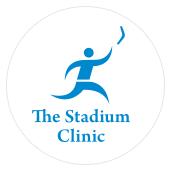Exercise is Medicine
Exercise plays a very important role in improving health and wellbeing. Appropriate exercises can increase strength, improve flexibility and reduce pain. Most doctors accept exercise as an essential part of the treatment process when recovering from bone and joint injuries or other debilitating conditions. Our health is stressed by the demands we make on the body in everyday life. It’s a fact that when you are fit and active, the stress or strain of daily life activities can be managed with less difficulty.
Here are some of the many benefits of exercising on a regular basis:
- Increased Energy: With regular exercise your body becomes more adept at performing routine tasks and can use oxygen and other nutrients more efficiently. As a result, you have more energy.
- Improved Strength: Weight training exercises improve muscular strength and bone density. You are less likely to suffer musculoskeletal injury.
- Maintaining Healthy Weight: The more active you are, the more calories you burn. A regular exercise program along with healthy eating is a sure-fire way to lose the extra weight and maintain a healthy body mass index.
- Improved Brain Function: Exercising improves blood circulation to all parts of the body including the brain. Increased flow of nutrients and oxygen to the brain results in improved concentration and cognitive ability.
- Better Heart Health: Regular aerobic exercise improves cardiovascular function, reduces levels of LDL cholesterol (bad cholesterol) and increases levels of HDL cholesterol (good cholesterol). This reduces your risk of developing heart disease.
- Lowered risk of diabetes: A sedentary lifestyle and consuming too much sugar in your diet are big risk factors for type 2 diabetes. Staying active can help control blood sugar levels and reduce your risk.
- Enhanced Immunity: Improved physical fitness results in an improved immune system and you are less likely to succumb to opportunistic infections and diseases.
- Improved Joint Health: Weight bearing exercises such as walking, jogging, or resistance training can improve joint health and reduce your risk for developing osteoarthritis or osteoporosis.
- Improved Mood: A good workout can trigger the release of endorphins which are happy hormones that help you relax and give you a sense of wellbeing. It can also help reduce stress levels or symptoms of depression.
- Better Sleep: Regular physical activity can help you sleep better and reduce your dependence on other sleep aids. Getting a good night’s sleep is in turn vital for maintaining overall health.


